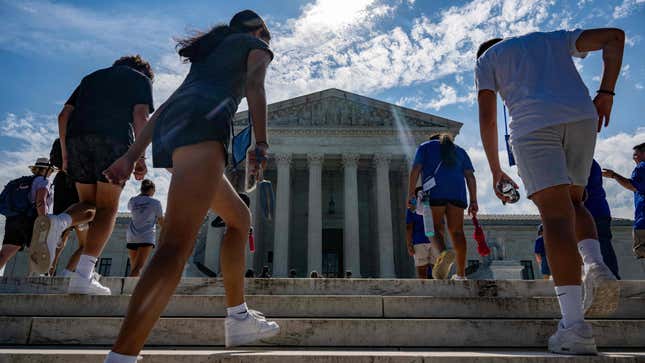Supreme Court Will Hear Abortion Pill Case Right in the Middle of the 2024 Campaign
Mifepristone will remain available throughout the litigation process.
AbortionPolitics

On Wednesday afternoon, the notoriously conservative Fifth Circuit Court of Appeals released its opinion on whether they’re going to ban mifepristone, the main abortion drug. Its ruling would restrict the medication, but a Supreme Court ruling from April, which blocked any changes to access during litigation, leaves the drug available for now. The Fifth Circuit’s ruling is expected to be appealed, which means the Supreme Court will likely hear the case (which has been brought by anti-abortion doctors) next term—in the middle of the 2024 campaign.
The case—which was filed strategically in an anti-abortion judge’s district in Texas—wants to ban mifepristone by revoking the Food and Drug Administration’s approval of the drug. The Texas district ruling was appealed to the Fifth Circuit. If the Supreme Court chooses to take up the case following the expected appeal, it will all but guarantee that abortion stays front of mind for voters, even in states that aren’t actively trying to vote on abortion rights.
-

-

-

-

-

-

-

-

-

-

-

-

-

-

-

-

-

-

-

-

-

-

-

-

-

-

-

-

-

-

-

-

-

-

-

-

-

-

-

-








































